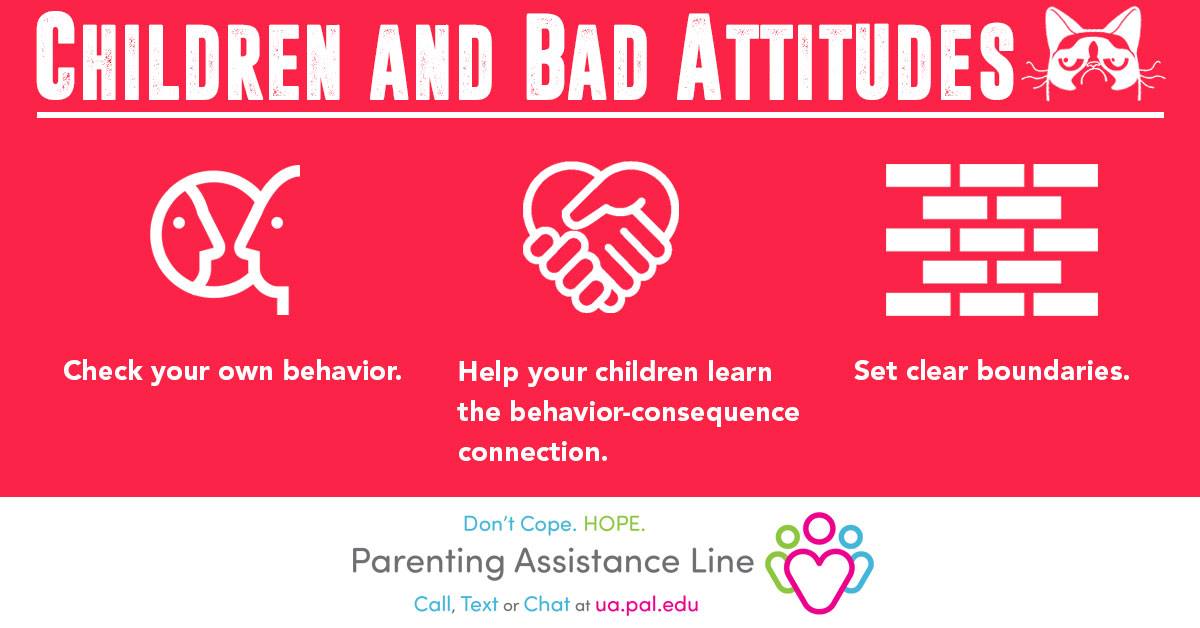No doubt, parenting is hard work. We all face those days when our children’s behavior gets the best of us and we wonder, “Am I really cut out for this job?” However, this should be the exception not the norm. Bad attitudes and rude behaviors must be corrected for the children’s sake as well as your own. Overindulged children grow into adults with poor character traits, a lack of moral intelligence, and difficulty maintaining lasting relationships.
How should parents deal with children’s bad attitudes?
- Check your own behavior – Remember children are watching everything you do. If you approach life with a negative attitude, they will copy you. Bad attitudes “are caught, not taught.” Model respect, manners, and gratefulness and expect them to do the same.
- Set clear boundaries – Children thrive when they know what is expected of them.
- Help your children learn the behavior-consequence connection – It is essential for them to know they will be held accountable for inappropriate behavior. The faster your child learns the connection between what they do and the effect it has upon others, the faster they understand the idea of responsibility and outcome.
Be consistent:
Say what you mean and mean what you say. Your children need to be able to trust you. Make your expectations clear and follow through with stated consequences each and every time!
- Don’t make excuses – When you first notice conduct such as sassing, whining or pouting, don’t pass it off as a “phase” or “not a big deal.” If you don’t address these issues immediately they will only worsen. The ‘amusing’ behaviors you permit during toddlerhood will not be so cute when they are teenagers! It is much easier to change a child’s attitude in the beginning than after years of indulgence.
- Allow your child to “reap what he sows” – No loving parent wants to see their child suffer. However, if we are always there to rescue them from their mistakes or allow them to place blame elsewhere, they will never learn how to assume responsibility for their actions. This deficit will ensure a lifetime attitude of dependency and manipulation.
- Take advantage of teachable moments – Valuable lessons are learned while living and observing others during the midst of an ordinary day. While watching a movie, television show, or reading a book, point out behaviors that please you. Also discuss with your child the consequences suffered as a result of a character’s bad attitude.
- Don’t foster a sense of entitlement – Children need and deserve a safe loving home, nutritious food, and adequate medical care. Everything else is a privilege. Reward your child with the extras because they have been earned through appropriate behavior or completed chores. Never reward a bad attitude by “giving in” to begging, whining or temper tantrums. Expect your child to express gratitude for gifts received and favors performed.







